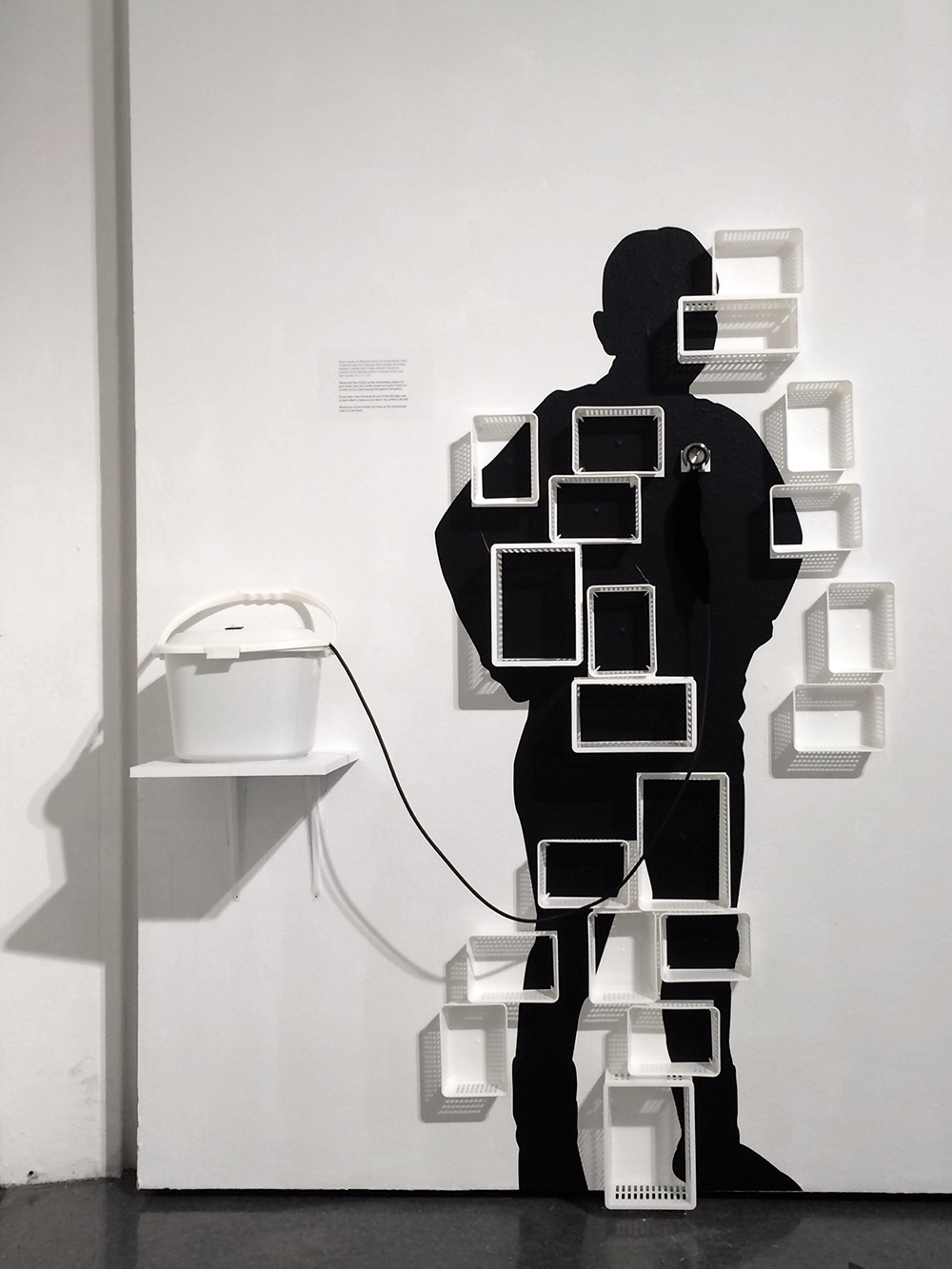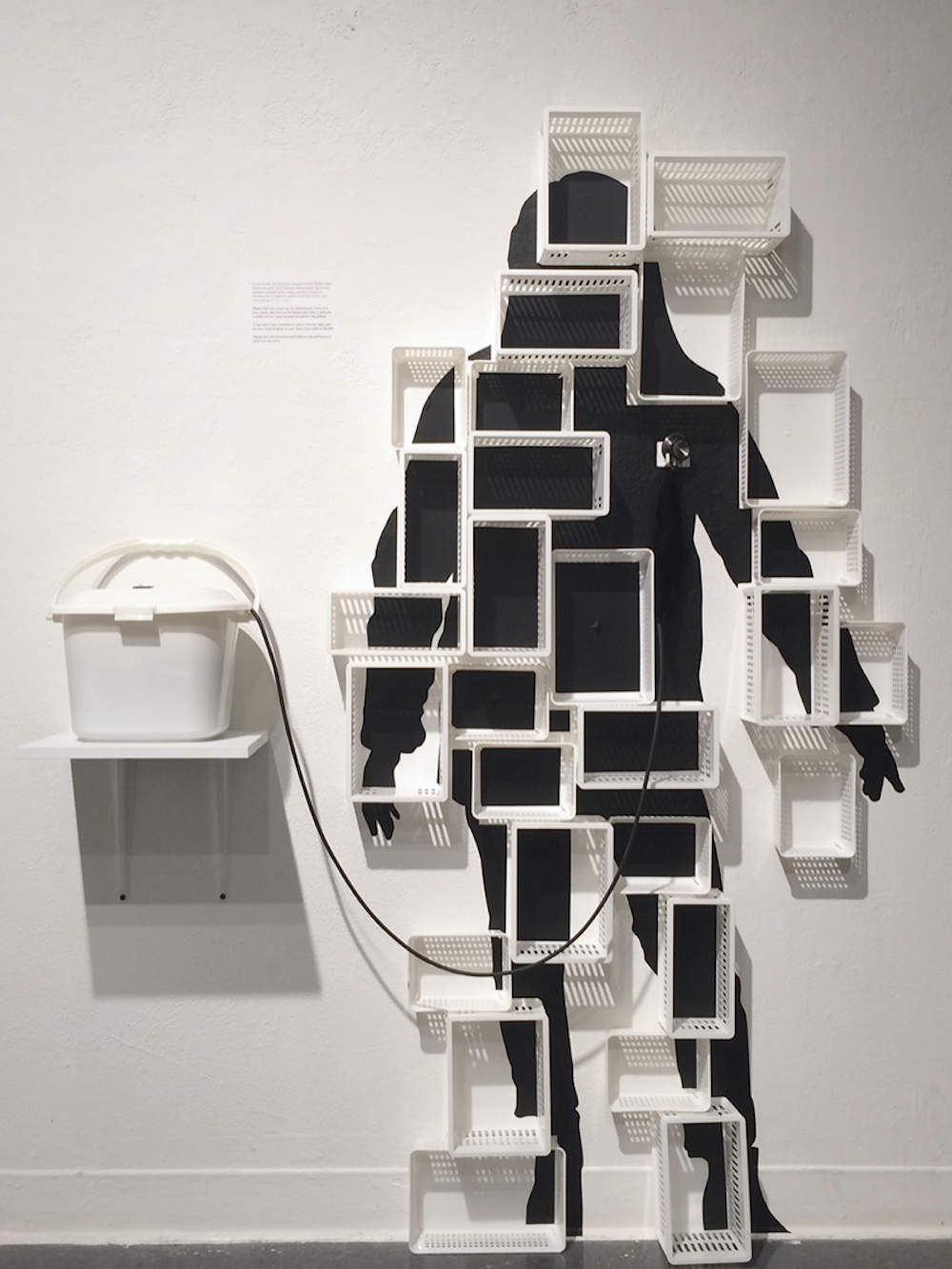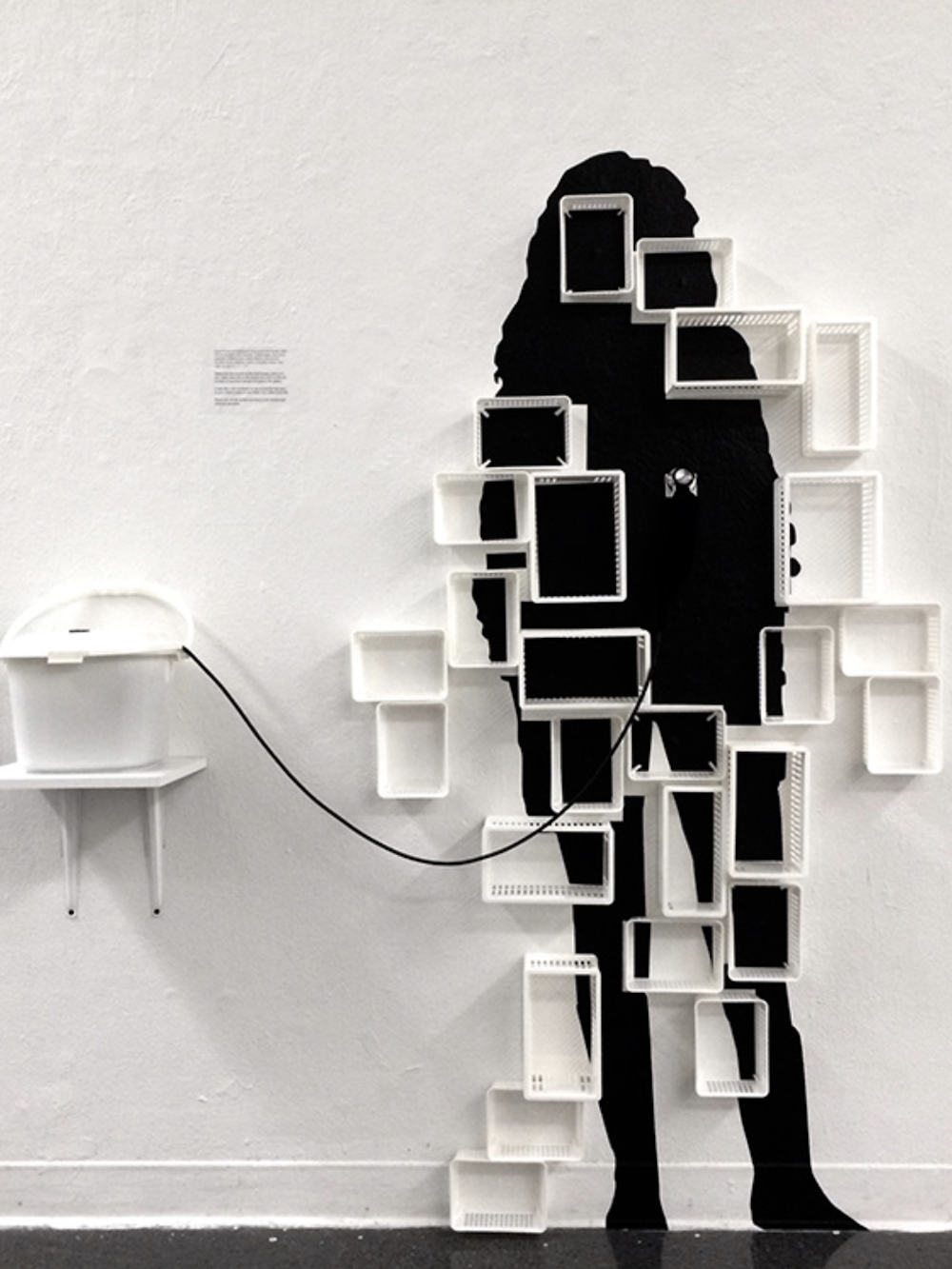Pictures
Blurb / Gallery Set



Project Overview
Many sensing technologies produce reductive categories that flatten social and cultural context. These categories embed ideas of what is ‘normal’ or what is worth recognizing. In seeking alternative roles and ways of knowing with sensing technologies, I was drawn to heart sounds. For many people, heart sounds do not suggest immediate insights or categories. They do not evoke the numerical beats-per-minute reading of a workout regime. Instead, they invite listening to one's own or another's body. Their sense of awkward intimacy and unmediated immediacy invites presence and reflective attunement to experience.
The Heart Sounds Buckets explore an uncomfortable juxtaposition between the vibrancy of listening to our bodies versus techno-medicalization. Live unfiltered heart sounds are present and shared, emanating from the buckets both aurally and haptically. Yet, these sharply contrast the white, plastic, sterile, mass-produced feeling of the buckets and organizer containers mounted to the wall. The intentionally cheap, low quality feeling of the buckets implies a lack of care in how this precious life signal is handled. As more and more aspects of our daily lives become medicalized, with sensing technologies to monitor and organize our bodies, behaviors, thoughts, and feelings, this project extrapolates this trend to an extreme degree. It explores the uncomfortable feeling of having one's heart in a sterile, cheap-looking piece of bucket technology.
The Heart Sounds Buckets are one project where I choose to explore the creepiness of bodily sensing in a gallery setting. With a less creepy presentation, amplifying the live unfiltered sounds of people's hearts can be a unique and joyful embodied listening experience. My dissertation project the Heart Sounds Bench explores fostering an affirmative experience with heart sounds in public space.
This project is a collaboration with Stephanie Tang and advised by Kimiko Ryokai.
Citation
Life-Affirming Biosensing in Public: Sounding Heartbeats on a Red Bench. 2019. Noura Howell, Greg Niemeyer, Kimiko Ryokai. Proceedings of the 2019 CHI Conference on Human Factors in Computing Systems. url pdf
Faculty Research
How can sensors, data, and algorithmic systems invite more ethical, respectful ways of knowing ourselves and others? How do these technologies maintain fairness and inclusivity across human differences, uncertainty, and the irreducible complexity of human experiences?
My design research investigates emotion AI — algorithmic ways of knowing emotion that use biosensory data about people’s bodies and behaviors. Combining custom sensor technologies, machine learning, and design research, I challenge dominant techno-logics of data and explore alternatives. I work with code, circuits, wood, e-textiles, and sound.
